With there seeming to be no end to all the crossovers in the market, thank goodness there are still people who like large sedans – and manufacturers who make them. One of them is Toyota, which has just launched its fifth-generation Avalon, which was first built in 1994. The big four-door shares a platform and factory (in Kentucky) with the Camry, both of which are built primarily for the North American market. The demand for big sedans is bigger in the U.S. than in Canada, where the most popular cars seem to be at least one level smaller across the board, but Toyota still offers the Avalon here, albeit with a narrower range of models and equipment.
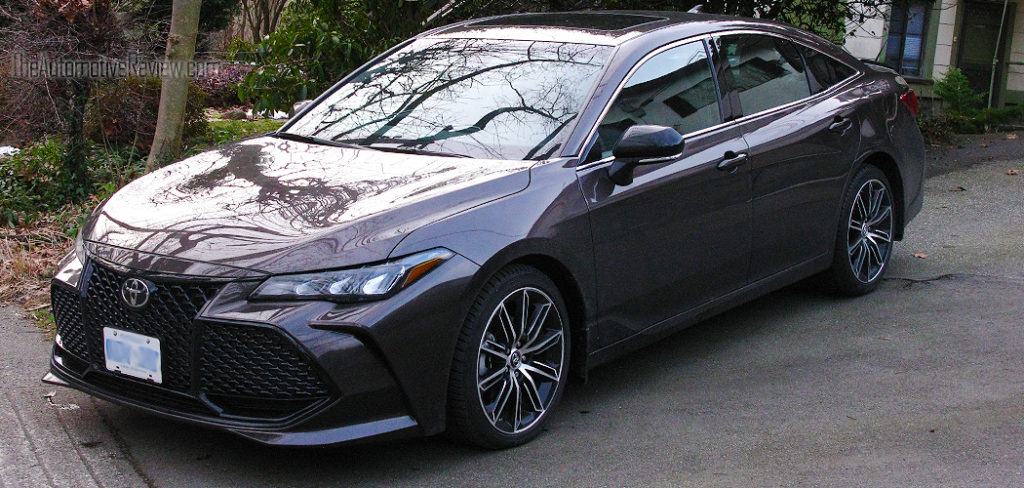
Our tester was the XSE, the lower of the two models available here. All Avalons are clearly aimed at baby boomers, empty nesters and retired folks, but Toyota is positioning the XSE as having some degree of sporting capability that the full-luxury Limited model doesn’t. Hence, the XSE has 19-inch wheels versus 18s, and sport-tuned suspension. One other feature on XSE is the Engine Sound Generator, which adds simulated intake sounds at start-up, on acceleration, and in Sport mode. So, the engineers do a great job making one of the quietest cars you could ever want, and then they add simulated engine noise to make this big luxury sedan sound sporty…..
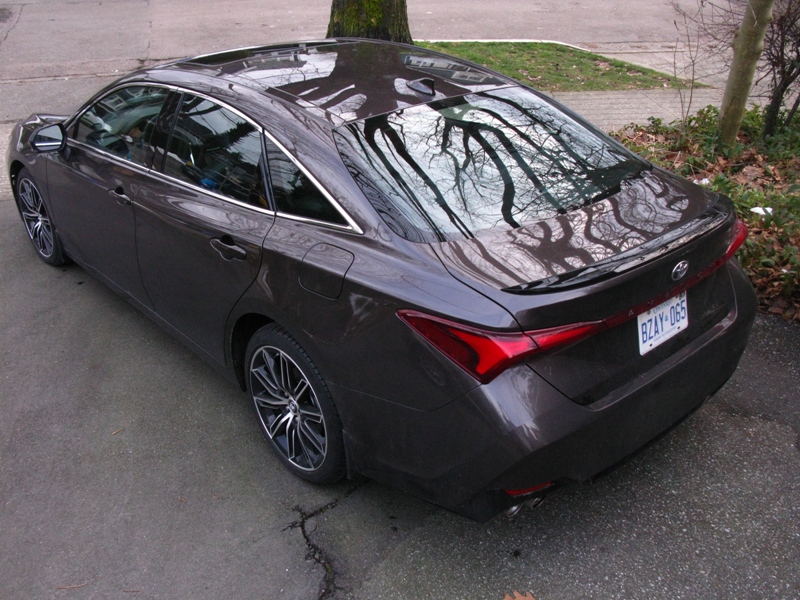
The Avalon, for such a big car, is fairly light at 1,650 kg (3,641 lb), so Toyota has been able to make it a capable handler, although one will probably not mistake it for a similar vehicle from Europe. Clearly though, ride comfort is still the priority, and at that, the Avalon excels. In any case, there are Eco, Normal and Sport modes, and paddle shifters for full control over the 8-speed transmission. The only engine choice is one that Toyota has offered for decades, the normally-aspirated 3.5-litre V6, now with 301 horsepower and 267 lb-ft of torque at 4,700 rpm. Power is delivered to the front wheels only; no all-wheel drive is available.

Like the Camry, the ’18 Avalon was the recipient of new and very sleek body styling that has changed both cars from conservative family transportation to objects of automotive desire and admiration. The Avalon looks long and low, with a purposeful stance on its big wheels. One aspect of its design that is not as successful is its face, the front end. What isn’t headlights is all grille, no exaggeration. It is a gaping maw of black plastic. A little chrome trim wouldn’t hurt.
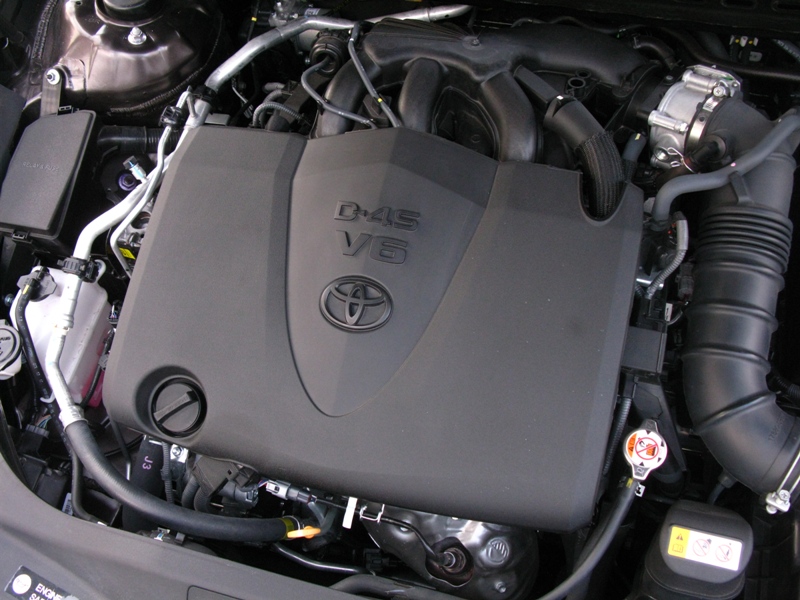
Big outside usually means big inside, and the Avalon certainly is that. The front seats, attractively upholstered in synthetic leather and suede, are wide and supportive, with multi-adjustability. With the seat set for a taller person, most of the way back on its track, said tall person can easily “sit behind himself” in the back seat, with lots of room in any horizontal direction. Vertical space, and entry and egress, are a little tighter thanks to the sloping roof and lower rear door openings. The trunk space is also generous horizontally, if not especially vertically, so four golf club bags should fit easily.

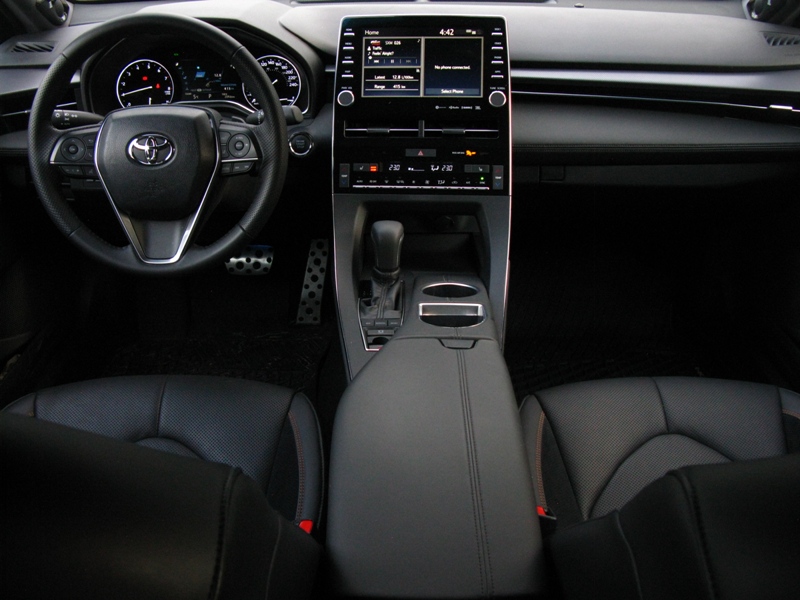
The driver is faced with a nine-inch touchscreen high in the centre stack, that allows control of most major functions, along with the steering-wheel controls for audio, phone and cruise control. Gone is the console mouse/touch pad approach that Toyota has used in the recent past, and while the screen is a farther reach when the seat is all the way back, it does allow more direct input of choices. Apple Car Play is included, but Android Auto is not, in this or any Toyota. Seems that Toyota and Google have a disagreement.

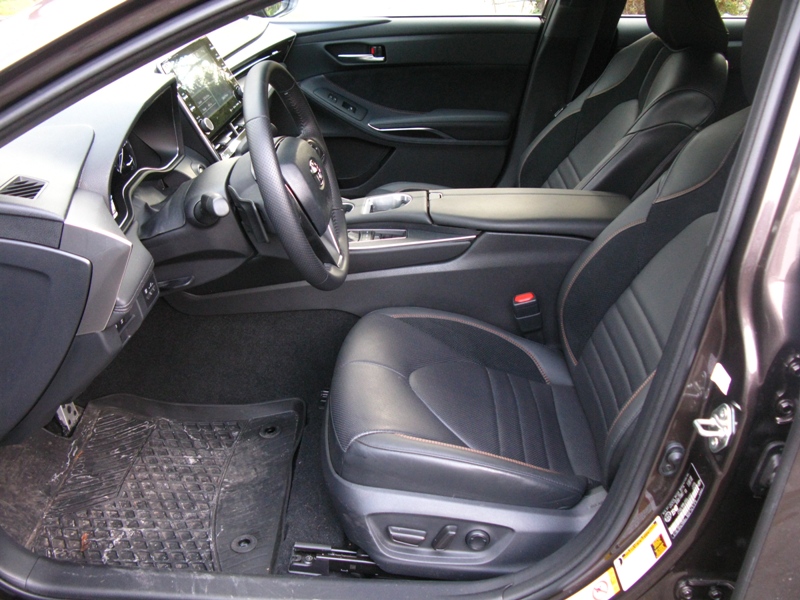
While the XSE model is well-equipped and a good value too, popular features such as heated steering wheel, driver seat memory system, ambient lighting and heads-up display are not available. For those, one must pony up another $5,000 for the Limited model which, as mentioned, does away with the sporty demeanour in favour of traditional mainstream luxury. One might wonder how many luxury brand (like, say, Lexus) shoppers will notice what a relative bargain either Avalon model is.

In a week of driving around in what passes for winter in Vancouver, the Avalon dealt with all the climatic and traffic chaos around it with aplomb, quietly (except in Sport mode) getting on with the job with a high level of comfort, and reasonable frugality of an observed 12.9 litres per 100 urban kilometres. The ‘official’ consumption rating is 10.9 city, 7.6 highway, for what it’s worth.
The large sedan is indeed holding its own in the over-heated crossover market, albeit more so in the U.S. than Canada. Drivers who don’t want anything but a good value in a big sedan can’t do any better than the Toyota Avalon.
Specifications:
- Base MSRP: $42,790
- Price as tested: $42,790
- Type of vehicle: Front-engine, front-wheel drive 4-door sedan
- Engine: 3.6L DOHC V6
- Power: 301 hp @ 6,600 rpm
- Torque: 267 lb-ft @ 4,700 rpm
- Transmission: 8-speed automatic
- Brakes: Four-wheel disc with ABS
- Curb weight: 1,650 kg
- Fuel Consumption (L/100 km) observed, urban: 12.9




